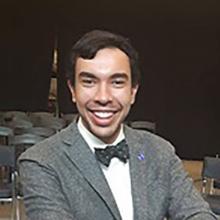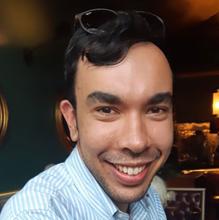Rodney Stehr
Why did you decide to pursue a graduate degree?
Part of the reason why I decided to pursue a graduate degree was to get the opportunity to work with queer youth to help support the emergence of more strengths-based literature around their experiences around what it is like finding a community and building a home in an urban center like Vancouver. A lot of my friends came to Vancouver from all across the province, and most of the literature zeroes in on the ways that my community fails to find or access supports (or develops innovative new jargon for blaming us for issues that are in fact systematic). I hope that in my graduate degree, I can contribute to making narratives that are less uniformly horrible.
Why did you decide to study at UBC?
I decided to study at UBC specifically for their interdisciplinary graduate studies program. I do not believe that the research that I would like to do would be possible for me to pursue if I were in a single discipline.
What is it specifically, that your program offers, that attracted you?
The Interdisciplinary Graduate Studies Program offers me the opportunity to work across traditional (and frankly limiting) disciplinary boundaries and draw on methods and frameworks that lend to more nuanced and experimental efforts to map queer experiences of urban space and place.
What was the best surprise about UBC or life in Vancouver?
I never realized that a single campus could have so many libraries.
What aspects of your life or career before now have best prepared you for your UBC graduate program?
I am really lucky to have had a mixture of front-line experience working at a variety of youth-drop ins in addition to also having several years of experience in research as a research assistant. Having experience in both areas has helped me get a better idea of what effective and realistic research recommendations and knowledge translation need to look like.
What advice do you have for new graduate students?
I found it really helpful to make friends in my classes and in my cohort. It is a great way to foster informal communities of support and care. Joining some sort of sport or recreational club where you can spend time with a group of people and the end goal is not grade-related is also a great way to be kind to your mental health.

